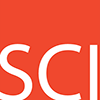It’s hard to envision a system more global and integrated than research. For this reason alone (and there are many others), global approaches are needed when we talk about “reforming” research, particularly with regard to making research more “open.”
The first step in this process isn’t to start pushing specific “solutions” —which is the typical course of action in this space—but to develop a better understanding of how the global research community’s needs and interests overlap. What are some of these overlapping needs and interests? First, the people in this community share a common motive—idealism—to make research better able to serve the public good. We also share a common desire to unleash the power of open to improve research and accelerate discovery; we are all willing to fix issues now instead of waiting for market forces or government intervention to do this for us; and we want to ensure that everyone everywhere has equitable access to knowledge. There is also very broad agreement in this community about which specific problems in scholarly communication need to be fixed and why.
In late 2014, the Science Communication launched the Open Scholarship Initiative (OSI) in partnership with UNESCO to develop a broad, global understanding of these needs and interests and in doing so help create the foundation for the next step of developing a global roadmap for improving the future of open research. Over 450 high-level leaders and experts in scholarly communication have contributed to OSI’s thinking over this time, representing viewpoints from over 250 leading research-related institutions across 28 countries and 18 unique stakeholder groups, from libraries to funders to publishers, universities, researchers, and government policy agencies.
As a group, OSI has concluded that four such beliefs best define our common ground: (1) Research and society will benefit from open done right; (2) Successful solutions will require broad collaboration; (3) Connected issues need to be addressed, and (4) Open isn’t a single outcome, but a spectrum.
The COVID-19 pandemic has made the importance of open science abundantly clear, but the struggle to achieve this goal (not just for science but for all research) has been and remains mired in a lack of clarity and urgency, mostly stalling on the tension between wanting more openness but lacking realistic solutions for making this happen on a large scale with so many different stakeholders, needs and perspectives involved. Underlying this tension is a fundamental difference in philosophy: whether the entire scholarly communication marketplace, driven by the needs and desires of researchers, should determine what kind of open it wants and needs; or whether this marketplace should be compelled to adopt open reform measures developed primarily by the scholarly communication system’s main billpayers—funders and libraries. There is no widespread difference of opinion in the community whether open is worth pursuing. The debate is mostly over what specific open solutions are best, and at what pace open reforms should occur.
OSI has proposed a plan of action for working together to rebuild the future of scholarly communication on strong, common ground foundation. This plan—Plan A—calls for joint action on studies, scholarly communication infrastructure improvement, and open outreach/education. Plan A also calls for working together with UNESCO to develop a unified global roadmap for the future of open, and for striving to ensure the community’s work in this space is researcher-focused, collaborative, connected (addressing connected issues like peer review), diverse and flexible (no one-size-fits-all solutions), and beneficial to research. UNESCO’s goal is to finish its roadmap proposal by early 2022.
For a full discussion of OSI’s common ground observations and recommendations, please see the summary version of OSI’s “Common Ground” paper at https://emeraldopenresearch.com/documents/2-18. The longer and more detailed version is available from the Mason Publishing Group website at https://journals.gmu.edu/index.php/osi/article/view/2725. We welcome your feedback at [email protected],
